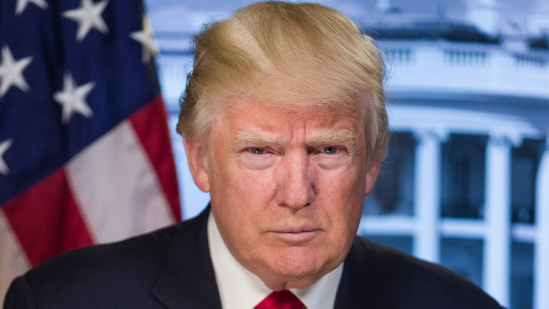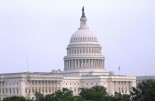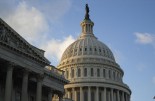La Française: Will sustainable investing weather another Trump term?
La Française: Will sustainable investing weather another Trump term?

As Donald Trump prepares to assume office in January 2025, his presidency is likely to pose significant challenges to the global momentum behind sustainable investing.
Trump’s first term was marked by a rollback of environmental protections, withdrawal from the Paris Agreement and a vocal skepticism of climate science. These policies sent shockwaves through the global sustainable finance ecosystem, and his return could once again test the resilience of ESG investing.
U.S.: ESG at a Crossroads
Trump’s anticipated energy policies, focused on reviving fossil fuels, could undermine progress made under the Biden administration. The Inflation Reduction Act (IRA), hailed as a transformative piece of legislation for clean energy investment, may face challenges, including reduced funding or altered provisions. It should be noted that we do not expect a full repeal of the IRA given that it could hurt the growth of domestic manufacturing jobs and clean energy investments, a majority of which have benefitted districts and states led by Republican lawmakers[1].
Also, a full rollback of the IRA could affect the US clean energy sector negatively in its competitiveness against China. However, Trump's likely support of fossil fuels and rollback of climate policies could create significant roadblocks for the sector and also for companies committed to reducing their carbon footprints. If federal incentives for renewable energy shrink, while support for traditional energy industries increases, it could potentially impact how quickly and broadly companies in the U.S. achieve their decarbonization plans.
For investors, the outlook is mixed. Investors may witness significant cuts to federal climate action and reporting standards. Trump’s pick for SEC Chairman, Paul Atkins, has been a vocal opponent of SEC’s climate disclosure rules[2]. However, states like California and New York are likely to continue to set ambitious climate goals. Additionally, large institutional investors could support the demand for sustainable assets, as both the financial risks of climate change and the desire for long-term resilience remain central concerns for asset managers and pension funds.
Earlier this year, JP Morgan Chase and State Street’s investment arms announced their departure from Climate Action 100+[3] while Goldman Sachs quit the Net Zero Banking Alliance[4] in December (after exiting the CA100+ in August). Financial firms in the U.S. have faced growing pressure from Republican politicians over their membership to climate action groups and over other ESG commitments, arguing that it could lead to a breach of antitrust law or fiduciary duty.
Nevertheless, growing climate risk awareness among financial institutions and the increasing importance of sustainable investing have continued to drive investments in the field, even without federal support. For instance, BlackRock’s "Aladdin Climate" platform enables investors to assess climate risks, while Goldman Sachs and Bank of America have pledged $750 billion and $1.5 trillion, respectively, towards sustainable finance by 2030. In the first three years since announcing the $1.5 trillion goal in 2021, Bank of America reported to have mobilized and deployed $560 billion in sustainable finance as of September 2024[5].
Europe: climate momentum set to continue
Europe is poised to reinforce its leadership in sustainable finance, especially as it works to fulfill its commitments from COP29 in Baku[6]. With the EU Taxonomy, the Sustainable Finance Disclosure Regulation (SFDR) and the European Green Deal forming the backbone of its ESG strategy, the eurozone is likely to raise the bar for sustainable investing. Trump’s presidency could exacerbate the transatlantic divide, prompting European regulators to further tighten their standards to uphold international climate goals and maintain a competitive edge in the global market.
For global investors, this divergence may highlight Europe as a hub for sustainable assets. European companies aligning with stringent ESG regulations could attract more capital, while U.S. firms struggling to meet international standards may face higher costs and reduced access to foreign markets.
The alignment of Europe's finance industry with the Paris Agreement and COP29 goals presents opportunities for those prioritizing green investments. Europe might also seek to influence global financial markets by expanding ESG disclosure requirements for companies operating internationally, which could impact multinational corporations based in the U.S. and elsewhere.
Should the U.S. federal government prioritize deregulation and fossil fuels, European countries may reinforce their commitment to carbon neutrality, potentially instituting new trade mechanisms such as carbon border adjustment taxes. These policies could increase costs for high-emission industries in the U.S., indirectly motivating American companies to align with global ESG standards in order to remain competitive in European markets.
Global Consequences: the ripple effects
On the global stage, Trump’s policies could hinder multilateral climate efforts, as seen during his first term. His return may challenge commitments made under the Paris Agreement and discourage collective action on climate finance. However, the outcomes of COP29, particularly the goal to triple renewable energy capacity and double energy efficiency by 2030[7], suggest the world is moving forward with or without U.S. federal support.
Trump has promised to take the U.S. out of the Paris Climate Agreement, just as he managed to do briefly during his first term in office. Leaving the Agreement would mean that the U.S. does not have to report on its emissions every year. Furthermore, the U.S. would have weaker legal responsibilities to provide climate finance to developing countries.[8] This could weaken global climate finance and take the pressure off other major countries, including China, to be more ambitious towards their own decarbonization strategies.
Nevertheless, we expect countries in Asia and the Global South to continue developing clean energy and adaptation projects spurred by private and multilateral investments. Initiatives such as the UAE Framework for Global Climate Resilience[9] and the Clean Energy Transition Partnership[10] will be critical in filling gaps left by U.S. withdrawal from global climate leadership. Countries that have already committed to net-zero targets, like Japan, China and Canada, will most likely continue pushing forward, creating a multi-polar sustainability effort where multiple regions lead independently of the U.S. federal approach.
In summary
The resilience of sustainable investing lies in its ability to adapt to political cycles. While Trump’s policies may challenge some aspects of ESG investing, the overwhelming shift in global markets towards sustainability is unlikely to be reversed. Investors, driven by both risk management and opportunity, will continue to integrate ESG factors into their portfolios, even in the face of opposition. The demand for transparent, responsible investments will persist, regardless of who occupies the White House. As a matter of fact, Trump’s second term might even underscore the urgency for private sector leadership in driving the sustainable investing movement forward in the US and elsewhere.
[1] White House senior climate adviser touts law's Republican state benefits | Reuters
[2] Trump’s SEC pick sparks concern from ESG, climate experts | ESG Dive
[3] JPMorgan, State Street quit climate group, BlackRock steps back | Reuters
[4] Goldman Sachs exits Net-Zero Banking Alliance | ESG Dive
[5] 2024 Sustainability at Bank of America
[6] The EU at COP29 (europa.eu)
[7] New announcements at COP29 power forward clean energy transition - Climate Champions (unfccc.int)
[8] Trump could quit Paris agreement - but leaving UNFCCC is harder (climatechangenews.com)
[9] What Is the UAE Framework for Global Climate Resilience, and How Can Countries Move It Forward? | International Institute for Sustainable Development (iisd.org)
[10] Clean Energy Transition Partnership (cetpartnership.eu)










